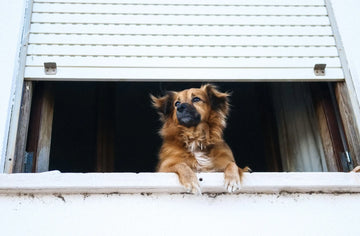I. Is Snoring a Warning Sign for Your Dog’s Health?
II. Why Do Dogs Snore?
1. Breed: One of the most common answers to why do dogs snore lies in their breed. Short-nosed breeds like Pugs and Bulldogs, known as brachycephalic dogs, have naturally narrow nasal passages. This makes breathing a challenge, especially during sleep, often resulting in snoring.

2. Obesity: Excess fat around the throat can compress the airway, making it harder for air to flow freely. This results in louder and more frequent snoring. Maintaining a healthy weight is a key solution to reducing dog snoring.
3. Sleep Positions:Sometimes the answer to why do dogs snore is as simple as their sleeping position. Dogs that sleep on their backs are more likely to snore because their tongue falls backward, partially blocking their airway. About 5–10% of dogs prefer this position, increasing their chances of snoring.
4. Environmental Factors: Environmental factors also play a role in why dogs snore. Allergens like dust, pollen, or even certain foods can irritate a dog’s respiratory system, making snoring worse. Additionally, exposure to secondhand smoke can harm your dog’s breathing and exacerbate snoring issues.

III. How to Reduce Dog Snoring?
1. Maintain a Healthy Weight:One of the easiest ways to address why do dogs snore is by keeping them at a healthy weight. A balanced diet and regular exercise can help reduce this risk.
2. Adjust Sleeping Positions: If your dog snores while lying on its back, encourage it to sleep on its side or stomach. This helps prevent the tongue from blocking the airway. Providing supportive bedding or pillows can also improve your dog’s sleeping posture and reduce snoring.

3. Improve Air Quality: Environmental factors can significantly affect dog snore frequency and intensity. Keep your home well-ventilated and free from smoke. Use air purifiers or humidifiers to reduce allergens, ensuring your dog has clean, fresh air to breathe.
4. Schedule Regular Vet Visits: If your dog snores persistently or the snoring becomes louder and irregular, don’t ignore it. A veterinarian can help identify any underlying health problems, such as infections or anatomical abnormalities, and provide the appropriate treatment.
FAQ






